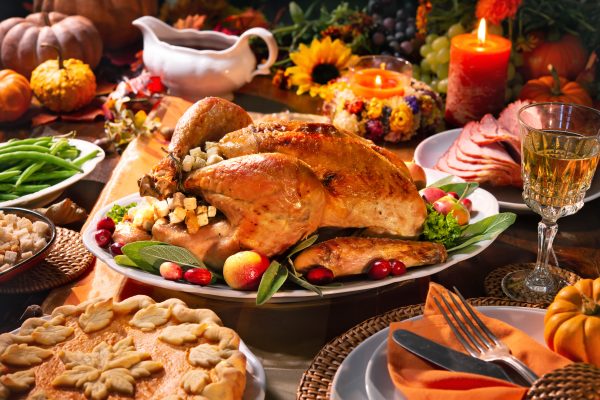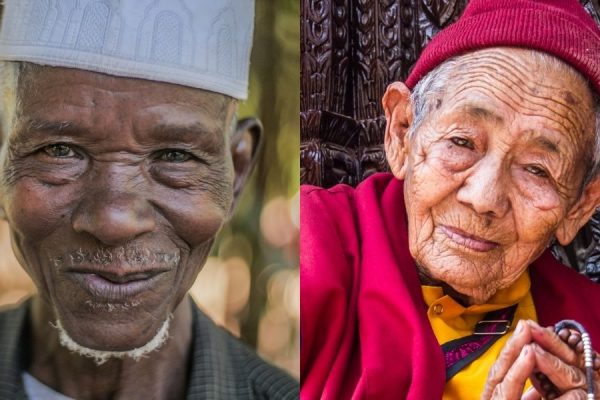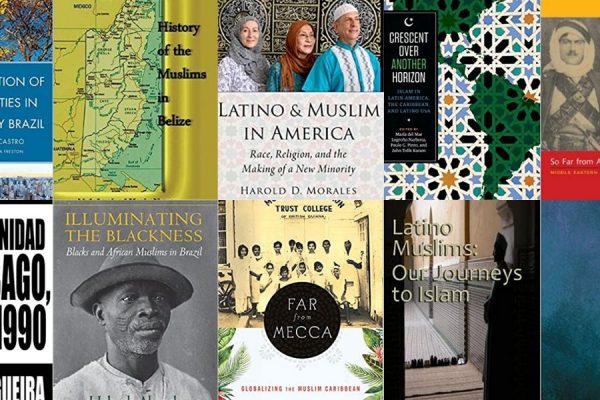Researching Islam has provided me with the opportunity and privilege to live my faith while encountering Muslims. My faith is rooted in compassion, knowledge, love, and peace. I have tried to share these things with the Muslims in my midst.
Researching Islam has provided me with the opportunity and privilege to live my faith while encountering Muslims. My faith is rooted in compassion, knowledge, love, and peace. I have tried to share these things with the Muslims in my midst.
Recent political events have once more thrust forward community divisions into the centre of everyone’s attention. As globalisation accelerates, different religious communities must come to terms with living in peaceful coexistence. But as society polarises, how can we build a path back to the peaceful tolerance that we long to enjoy? Where should we start, and should we even care? Of course we should. In fact, for Dr Craig Considine, building bridges between divided communities is a life-long ambition.
Craig Considine is not only a scholar based at Rice University, but he is one of the leading global voices in interfaith dialogue. Perhaps best known for being the author of the book The Humanity of Muhammad – A Christian View, he is a practising Christian who calls for non-Muslims to love and cherish Islam. Naturally curious about this viewpoint, I had the pleasure of speaking to Craig about faith, politics, and unity in a divided world.
[Questions by Adam Hafiz, answers by Craig Considine]
AH: How important is Islam in the history of the U.S?
CC: The history of the United States cannot be properly told without understanding the lived experiences of Muslims, and the US’ relationship with the so-called Muslim world. Islam is vital to the “American story.” Up to 30% of all slaves transported to the US were Muslims from West Africa. The Founding Fathers imagined Muslims as future citizens of the republic, evident in the primary sources that they left behind, and the Sultan of Morocco was the first foreign leader to recognize the independence of the US.
Muslims have fought in every war in American history. Muhammad Ali, one of the greatest Americans in history, was a Muslim. The list goes on and on. I am only scratching the surface. I have written extensively about this issue in two previous books: Muslims in America: Examining the Facts and Islam in America: Exploring the Issues.
Politics is changing fast in the U.S, how do you see recent events impacting inter-faith relations?
I am an optimist, a “glass half full” kind of guy, but I am concerned about interfaith relations not only in the United States, but around the world. In the US context, I do not think interfaith dialogue is taken very seriously by most Americans. Those who do participate in interfaith dialogue are the kind of people who are already building bridges of understanding.
Proponents of dialogue (like myself) need to reach the apathetic people that see no use in it. Religious communities also must ingrain interfaith dialogue into the very social fabric of their places of worship, or else we run the risk of reproducing divisions and stereotypes of each other.
You mention in your book, “Indeed Muslims have made me a better human being”. Could you expand on this for us?
Muslims guided me back to God after many years of agnosticism and atheism. They have helped me broaden my mind on the nature of our Creator. My idea of God now is much bigger than it was when I first started on this journey in 2003. My journey back to the God of Abraham has made me far more humble and tolerant. Now I have a much deeper appreciation for – and indeed love for – humanity at large.
Put simply, what do you admire about the Prophet Muhammad (pbuh)?
I really admire the confidence he had in his faith. One of my favorite stories pertains to the beginning of the second hijra, when he and Abu Bakr were hiding in the cave of Sawr. Abu Bakr was afraid that a large party of the Quraysh were about to catch them, saying: “We are only two.” Muhammad responded: “No, we are three, for God is with us.” I remember this story when I question my own faith.
Who is Muhammad (pbuh) to you?
Muhammad is a man of many hats. To me, he is a prophet, theologian, statesman, jurist, general, merchant, mystic, father, husband, son, nephew, and friend. He was skilled in many facets of life. His skills enabled him to touch the hearts and minds of many people. Muhammad’s well-roundedness is something that I strive for in my own life.
How did Muhammad (pbuh) treat Christians and people of other faiths?
Muhammad treated Christians and people of other faiths as they wished to be treated. He lived by the Golden Rule. He showed tremendous hospitality to the Christians of Najran in allowing them prayer space inside the Prophet’s mosque in Medina around 630. In crafting the Constitution of Medina, he granted religious minority populations freedom of conscience, freedom of religion, and other fundamental human rights.
He stood up for a Jewish funeral procession when his peers were reluctant to do so. While there were occasions when Muhammad had conflicts with people of other faiths, these moments were not triggered by fundamental religious disputes, but rather broken treaties, political quagmires, and outright threats that endangered his people.
What lessons from the past can we learn when it comes to Christian-Muslim relations?
We thrive together when we are inclusive and when our societies are open. We perish together when we are arrogant and when we do not seek common ground or peace.
Islam is often treated as a distant, obscure religion in the West. Should it be?
The history of the so-called West cannot be told without also telling the history of Islam and Muslims within the West. It is important to note that Islamic and Western civilizations have always engaged in a mutual exchange of ideas and projects. Take the legacy of “Islamic Spain” as a key example. Civilization was pushed forward during this period because of the synthesis of civilizations across the perceived cultural, ethnic, racial, and religious divides.
We need to stop thinking about Islam and the West in binary terms. There is a “grey zone” between these civilizations. It is a kind of Third Space of confluence, fluidity, and hybridity. This is the space I prefer to operate and think in.
How has your research on Islam changed your relationship with the Christian faith?
It has made me more aware of the Christological debates concerning the nature of Jesus throughout history. As a Christian growing up in the Catholic Church, we were never taught about the early Christian ecumenical councils that grappled with the various narratives surrounding Jesus in the first five hundred or so years of the Church.
On another note, researching Islam has provided me with the opportunity and privilege to live my faith while encountering Muslims. My faith is rooted in compassion, knowledge, love, and peace. I have tried to share these things with the Muslims in my midst.
What barriers have you come across in inter-faith relations, and how do you approach them?
Muslims regularly tell them that I should convert to Islam “before it is too late.” They condemn me to the hellfire. I receive many daily messages about needing “hidiyah” and guidance to the “true faith.” There are also Muslims who slander me and try to discredit my work by telling other Muslims that I have no clue what I am talking about. These Muslims do not trust my intentions or words for the simple fact that I am Christian. I am no fan of the “identity police.”
There also are Muslims who think I only care about “likes” and money. These are typically the people who do not know me personally, and who are probably blinded by their own egos. Christians do many of the same things too, but in a slightly different fashion. These Christians write that I am a “secret Muslim” working on behalf of nefarious Islamic dictatorships around the world. They think I am making a fortune off “speaking positively” about Muhammad. I can ensure your readers that I live a very humble existence and that I am far, far, far away from being “rich” in monetary terms. Moreover, the Islamophobia industry regularly publishes articles attacking my character and conduct, as well as my books and general content.
The attacks have become more frequent and personal since the publication of The Humanity of Muhammad – A Christian View. For the most part, I just focus on my mission, on doing good. I am passionate about what I do. I find a lot of joy in it, so I do my best to focus on the uplifting elements. My Ma (mom) always told me, “you cannot please everyone. The minute you try, you lose yourself.” She is right. And my dad always told me that there will be haters in your life. I would share with you his words of advice to me, but I am afraid the language is not suitable for your audience.
Do you think that society would benefit from the full or partial implementation of Sharia law?
I think, at least in the American context, society already implements many of the fundamental components of the sharia, which protects faith, family, intellect, life, and property.
Are there any stories from the Quran that particularly moved you?
The entirety of Surah Maryam is moving to me as a Christian. It reminds me of the stories about Jesus and Mary that I grew up with in Boston. It is perhaps the most important Qur’anic chapter when it comes to interreligious relations between Christians and Muslims.
In your opinion, do modern Muslims live up to standards set out by Muhammad (pbuh)?
Yes and no. I would say the same thing about modern Christians living (and not living) up to the standards of Jesus. Those who do not live up to his standards are poisoned by arrogance, more so than anything. The same is true for the Christians who are not living up to Jesus’s teachings.
Which modern-day Muslims do you admire the most?
The ones who are brave, compassionate, generous, humble, just, knowledge-lovers, loving, peaceful, and seekers of truth.
I have many role models who happen to be Muslim. Professor Akbar Ahmed, Imam Shamsi Ali, Safi Kaskas, Qasim Rashid, and Sheikh Hamza Yusuf are but a few.
Have you travelled to any Muslim countries, and do you have any stories to share with us?
I have travelled to Istanbul, Turkey, which was an extraordinary journey into a rich and vibrant city. I instantly fell in love with Turkish food. It is now my second favorite cuisine behind Italian.
I also had the privilege of having a private tour of the Sheikh Zayad masjid in Abu Dhabi. I really enjoyed learning about the motives behind the architectural styles of the building, which remind us of the glories of Islamic civilization, as well as the architectural synthesis across civilizations.
Finally, is the U.S benefiting from the influence of Islam?
I have long said that some of the best Americans happen to be Muslims. There are few sectors of American life that Muslims have not touched for the betterment of society at large. Muslims are our doctors, elected officials, lawyers, and teachers, and they also make the country go round by performing so many critical tasks in the food, housing, and transportation industries.
For me, Muslims are also my colleagues, friends, mentors, and role models. I will always stand by them because they are admirable human beings who I love.





